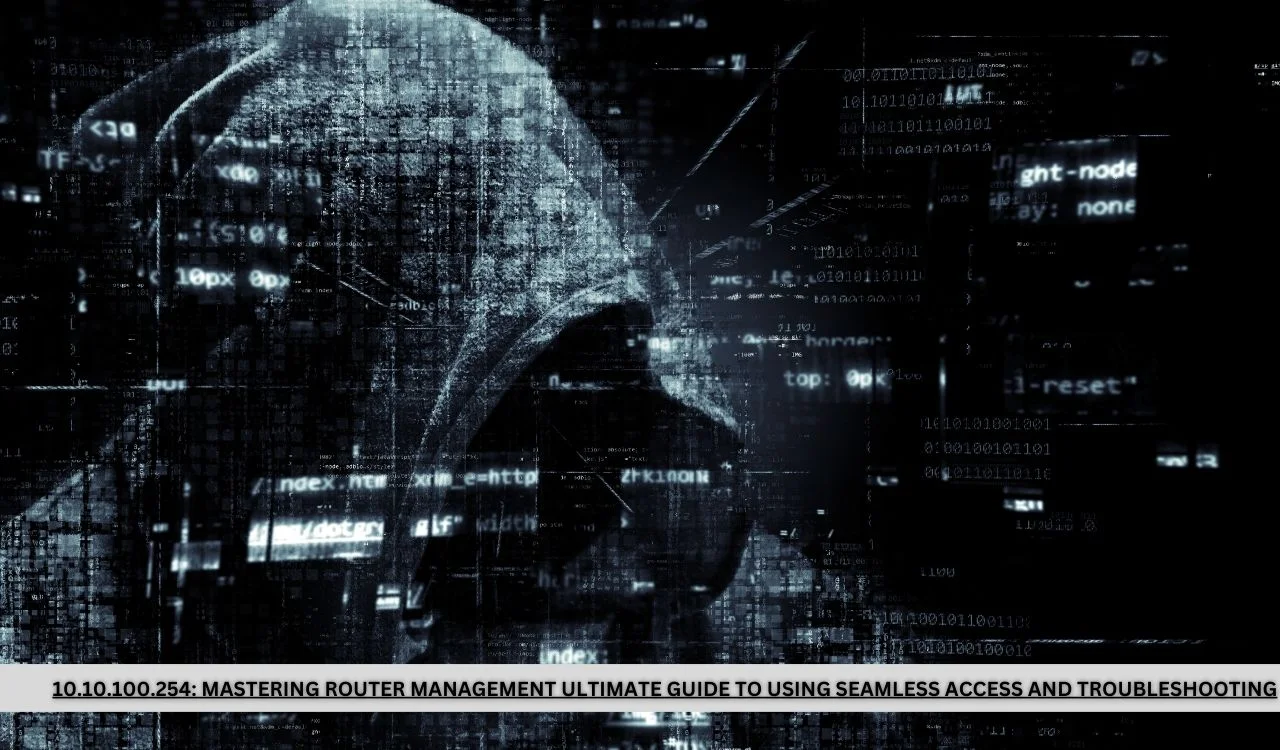Navigating your home or office network efficiently requires easy access to your router’s administration page. Many routers use the IP address 10.10.100.254 as their default gateway for managing settings. Whether you’re looking to configure network settings, troubleshoot connection issues, or enhance security, accessing the router’s admin page is crucial. This comprehensive guide will walk you through the steps to log in to the administration page using 10.10.100.254, troubleshoot common access problems, and manage your router settings effectively. We’ll also address what to do if you encounter unexpected login pages and how to handle default credentials, password changes, and factory resets.
How to Use 10.10.100.254 to Log In to the Router’s Administration Page
When it comes to managing your home or office network, accessing your router’s administration page is essential. The IP address 10.10.100.254 is often used as a default gateway for many routers. In this comprehensive guide, we will walk you through the process of logging in, troubleshooting common issues, and managing router settings effectively.
Accessing the Router’s Administration Page Using 10.10.100.254
To start managing your router, you need to access its administration page. Follow these steps to use 10.10.100.254:
- Connect to Your Network: Ensure that your computer or device is connected to the router either through a wired Ethernet connection or via Wi-Fi.
- Open a Web Browser: Launch any web browser such as Chrome, Firefox, or Edge.
- Enter the IP Address: In the address bar, type
http://10.10.100.254and press Enter. - Log In: You will be prompted to enter a username and password. The default credentials are often set to
adminfor both fields, but this can vary depending on the router manufacturer. - Access the Admin Panel: Once logged in, you can access various settings and configurations of your router.
Troubleshooting 10.10.100.254 Access Issues
If you are unable to access the router’s administration page at 10.10.100.254, consider the following solutions:
1. Verify Your IP Address
Ensure that 10.10.100.254 is the correct IP address for your router. Sometimes, routers use different IP addresses such as 192.168.1.1 or 192.168.0.1. Check your router’s manual or look for a label on the router itself for the correct IP address.
2. Check Your Connection
Ensure that your device is properly connected to the router. If using a wired connection, verify that the Ethernet cable is securely plugged into both the router and your computer. For wireless connections, make sure you are connected to the correct network.
3. Clear Browser Cache
Sometimes, browser cache can cause issues. Clear your browser’s cache and cookies and try accessing the IP address again.
4. Restart Router and Device
Power cycle your router and the device you are using to access it. Unplug the router, wait for about 30 seconds, plug it back in, and then restart your device.
5. Check Router’s Firmware
Outdated firmware can sometimes lead to access issues. Ensure that your router’s firmware is up-to-date by checking the manufacturer’s website.
Read Also: 172.20.8.31: Mastering Router Access Guide to Using for Optimal Network Management

Accessing ISP Login Pages Instead of Router Admin Page
If entering 10.10.100.254 redirects you to your Internet Service Provider’s (ISP) login page, it might be due to one of the following reasons:
1. ISP’s Captive Portal
Some ISPs use captive portals to handle initial setup or payment. This often appears when you are trying to access the router’s admin page while not logged into the ISP’s network.
2. IP Address Conflict
An IP address conflict can occur if another device on your network is using the same IP address. Check your router’s settings to ensure there are no conflicts.
3. Incorrect IP Address
Double-check that you are entering the correct IP address. The ISP’s login page may appear if the router’s IP has been changed or if you are trying to access the wrong IP address.
Default Username and Password for 10.10.100.254 Routers
For routers using 10.10.100.254 as the default IP address, the default login credentials are often:
- Username:
admin - Password:
admin
However, these can vary based on the router brand and model. Consult the router’s documentation for accurate login details.
Changing the Router’s Password
To enhance security, it’s crucial to change the default password. Follow these steps to change the password on your router:
- Log In to Admin Page: Access the router’s administration page at 10.10.100.254 using the default credentials.
- Navigate to Security Settings: Find the section for security settings or administration settings.
- Change Password: Locate the password change option, enter your new password, and confirm it.
- Save Changes: Save the new settings and restart the router if necessary.
Restoring Factory Settings on Routers Using 10.10.100.254
If you need to reset your router to its factory settings, follow these steps:
- Locate the Reset Button: Find the reset button on the router, usually a small pinhole.
- Press and Hold: Use a paperclip or similar tool to press and hold the reset button for about 10-30 seconds.
- Wait for Restart: Release the button and wait for the router to reboot. It will restore all settings to the factory defaults.
- Reconfigure Router: After resetting, you will need to reconfigure your router’s settings from scratch.
Read Also: 127.0.0.1:57573: Your Ultimate Guide to Troubleshooting and Connectivity Solutions

Conclusion
Understanding how to use 10.10.100.254 for router management is essential for network maintenance and troubleshooting. By following these guidelines, you can efficiently access your router’s administration page, resolve common issues, and manage your network settings.












